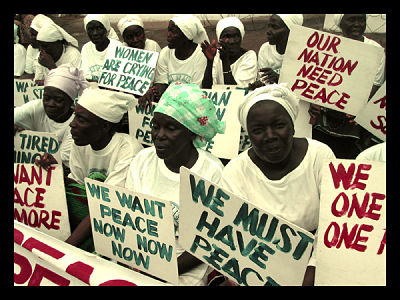Do War Crimes Affect the World’s Poor?

For hundreds of years, humans have been developing the modern-day laws of war to determine what is legal in the context of armed conflict. For the most part, such laws have been set to govern international armed conflict, such as the Geneva Conventions. Nonetheless, the Internet, traditional media sources, and social media connect us to daily atrocities, carried out under the guise of war that continue to violate international humanitarian law and prey on the extreme poor. As a result of violations that inhibit domestic and international aid, millions of people face hunger and disease in association with extreme poverty that goes unaddressed by international courts.
In 1945, when WWII was won by the Allied Forces, with 6 million dead in concentration camps, the responsible Nazi officers were tried for war crimes. All of the Allied nations, though not initially supporting the format of the trials themselves, backed the justice meted out by the Allied courts as a response. Some of the officers faced death, while others were sentenced to prison.
Today, the international body charged with bringing justice to war-torn nations, the International Criminal Court, fails to be recognized by the United States and many other influential countries that affect the global-political environment of the United Nations. Without having all countries as signatories, the ICC struggles to address atrocities being committed in some of the world’s poorest and most disenfranchised communities.
Because the ICC depends on participation from countries hosting alleged criminals to assert jurisdiction over the criminals within that host country’s borders, a lack of participation effectively cripples the ability of the Court to perform its duties in upholding international humanitarian law. In some cases, domestic courts are left to deliver justice, which, in the context of Syria, becomes all but impossible, seeing as the target of charges is the country’s president.
Because the poorest communities are often targeted by the perpetrators of war crimes, such as leader of the Lord’s Resistance Army Jospeh Kony, it may be all the more necessary that international courts acquire jurisdiction over these otherwise ungoverned warlords. The most impoverished are often the first casualties of war and feel the effects of a diminished food supply, lacking sanitation, and inadequate first aid facilities. Refugees of war in Africa and Asia are particularly vulnerable in the face of natural disasters and the long-term effects of climate change.
– Herman Watson
Source: USHMM, International Criminal Court, WarChild UK
Photo: Save the Children
